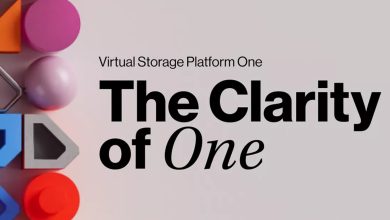
The University Malaysia Sabah (UMS), located in scenic Sepanggar Bay in Kota Kinabalu in Sabah, isn’t just one of Malaysia’s most stunning universities; it is also one of its best, offering at the moment 115 academic study programmes across 11 faculties. It is also home to 22 centres, including the Preparatory Centre for Science and Technology, the Centre for Data and Information Management and the Research and Innovation Management Centre, along with four prestigious institutes that include the Biotechnology Research Institute and the Borneo Institute for Indigenous Studies.
Established in 1994 as Malaysia’s ninth public university, UMS has been producing world-class professionals in various fields of knowledge, and it is doing so by staying true to its vision of being an innovative university of global standing. In order to ensure this, UMS has been resolute in developing both modern infrastructures and a capable, well-managed and well-supported faculty that can cultivate the younger generation into responsible and highly-skilled individuals.

Finding a Partner for Innovation
It should come as no surprise then that UMS is open to collaborations that would help it accomplish what it set out to do over two decades ago. And, in 2017, UMS found a truly world-class partner in Huawei, one of the undisputed leaders not only in smartphone manufacturing but in the entire realm of tech.
This partnership between two leaders in their respective fields—academe and tech—formally began on the 9th of November 2017 with the signing of a Memorandum of Understanding between UMS and Huawei at the third-annual Huawei Asia-Pacific Innovation Day in Kuala Lumpur. Gracing that affair as co-hosts were Malaysia’s Ministry of International Trade and Industry (MITI), the Malaysia Digital Economy Corporation (MDEC) and the Malaysia-China Business Council (MCBC), which bore witness to UMS and Huawei officially establishing the smart campus initiative, alongside other industry-driven programs.
Less than a year later, on the 6th of June 2018, Huawei and UMS signed a Memorandum of Agreement setting up the Huawei Authorised Information and Network Academy (HAINA), or simply the Huawei ICT Academy. The Academy is part of Huawei’s broader global initiative to cultivate ICT talents and support ICT skills development in other partner countries, of which Malaysia is one. Equally important, it is aligned with UMS’ Strategic Transformation towards the Fourth Industrial Revolution or Industry 4.0.
Producing World-Class ICT Professionals
Through the Academy, Huawei and UMS deliver 22 Professional Certification Training to UMS students who choose to enrol in the programme. Educating them in the academy are specially trained lecturers who have earned the distinction of being Huawei Certified Academy Instructors (HCAIs) for meeting the requirements set by the academy. Among the courses available are core technologies supporting Industry 4.0, notably telecommunications and networks, big data, IoT, cloud computing and Artificial Intelligence (AI).

Since it was established in 2018, the academy has produced over 450 UMS ICT graduates, who took part in the Huawei training courses, with most of them becoming either Huawei Certified ICT Associates (HCIAs) or Huawei Certified ICT Professionals (HCIPs) in fields such as routing and switching, cloud computing, big data, AI, cybersecurity and 5G. These graduates have entered the world of tech—as Network Engineers, IT engineers, DOC Engineers, Software Engineers, Network Product Engineer and so on and so forth—and some have even received offers to work with either Huawei itself or with the company’s various partners in Malaysia, in the rest of Asia Pacific and as far as the Middle East.
The Time for Transformation Is Now
The entry of these new HCIAs and HCIPs into the professional world comes at a most opportune time as it coincides with the ongoing explosion of digital information that is being spurred on by the advancement of ICT technologies. Granted, these same advancements will likely cause some traditional jobs to be lost but it will nonetheless open up plenty of opportunities for local ICT talents who will be counted upon to unlock and accelerate digital transformation.
And, over the better part of three years, Huawei and UMS have been unlocking potential ICT talent, with their strategic collaboration bridging the skills gaps in the labour market and increasing graduate employability. With that being said, it is safe to say that this partnership has been a rousing success. Even so, it is worth noting that it is in many ways still in its infancy, which means it has so much room for improvement and growth. And it will only continue to improve moving forward, with both Huawei and UMS committed to helping young, aspiring professionals to explore and learn about the latest ICT technologies—and with industry experts leading the way no less.
There is no denying that Malaysia is teeming with potential ICT talent that will ensure a brighter ICT future for Malaysia. It is only waiting to be tapped and harnessed.
Huawei and UMS have been doing exactly that since 2018. They will continue to do it in the years ahead.




